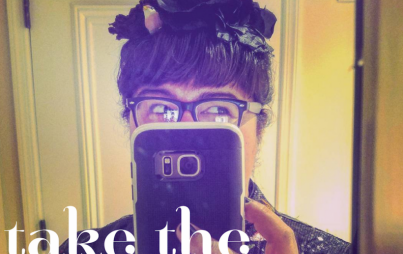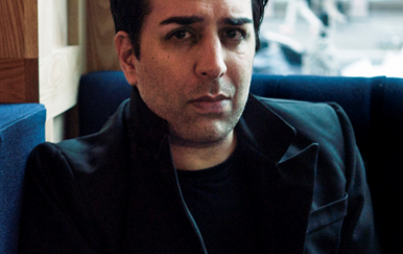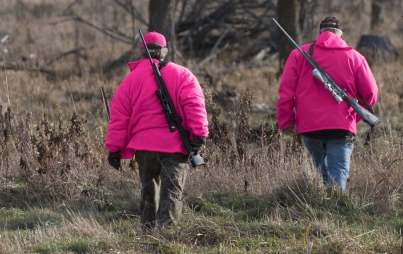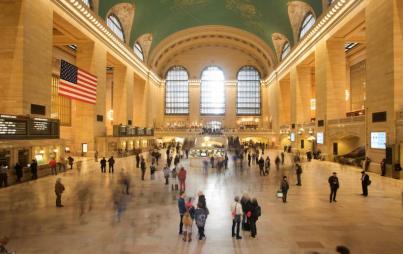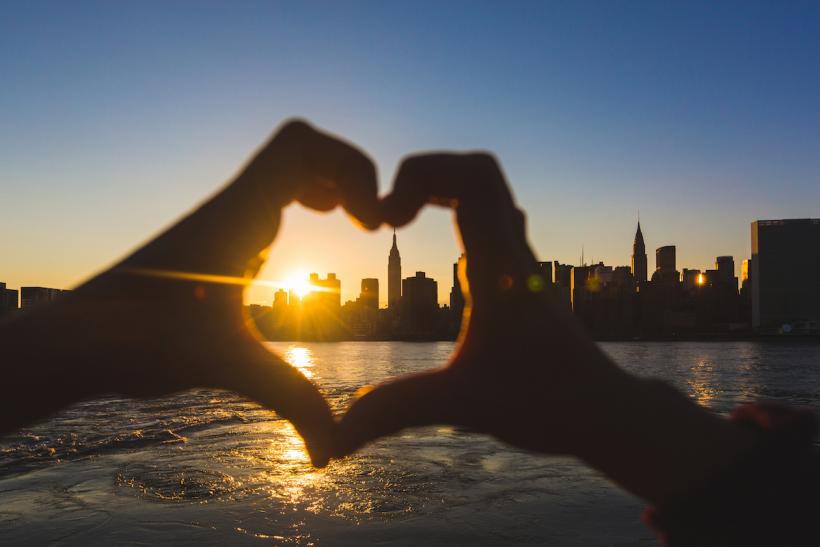
Is it worth it? Yes. (Image via Thinkstock)
The sum of a city isn’t always made up of its parts. In New York City, this includes morning garbage, the near-constant sirens, rapid gentrification, desperate dependence on public transport (given the burden that is a real, actual car), and ludicrous rent — oh, the rent prices — that could have secured a four-bedroom mortgage in a leafy, adult suburb. But, my love, cities are complex creatures, undefinable. City people are made up of something different, something wild, something that says, “I am a fool, and I love it.”
OK — maybe that last part is a lie.
Still, I fell hard for the city — as we Jersey folk call it. And I’ve had 12 years to ruminate on the truth of it all, having lived eight of those in Brooklyn, three in Queens, and one Manhattan. Crown Heights, Brooklyn Heights, East New York, Rego Park, Financial District, thank you.
But each and every goddamn year, without fail, people comment on my choices; they project onto me everything a person in a city could possibly absorb: that I’m sooo rich (I'm not, but if I was, so what?), that I must have a trust fund (hint: they’re out there, pretending not to have one), that my boyfriends have money and I’m living off of them, that I’m an elitist, that I’m so warped by the subway system and the high-rises that greenery and quiet and cars and everyday conversation with a kindly neighbor elude me.
Those native New Yorkers exist, but I’m here to tell you that your projections and assumptions are petty and prejudiced and say much more about you than they do me. Often, people from out-of-state or out-of-city are quick to judge, but there’s a smack of jealousy to it all — that I could hack it, that I could embody some silver screen “New York City Life." And they’re right. I do embody it. And I’m very good at it — but that doesn’t mean I’m snobbish or cold or ignorant to the perks of living anywhere but here.
One of the reasons I am blessed by my life here in NYC is that I have had experiences that I will remember on my death-bed. And despite all the aforementioned insanity, I wouldn’t change my experience for a moment.
However, I am well aware of the downfalls and the evident and problematic privileges. Psychologically, I understand there is a codependence to this life if you let yourself really stare into the abyss: once you’re here, you’ve assembled a life, a lifestyle, a group of friends, and a career — something that, despite the city’s aggressive cruelties, is hard to walk away from. And that’s perhaps the saddest part — that we know it. We know what we’re doing to ourselves and we find it hard to part ways. There is simultaneous grief and acceptance.
I also know that, in Manhattan, doorman studios average $3,064 per month, while one-bedrooms average $4,198 per month. Kick that up by another $2,000 for two-bedroom apartments. And in Brooklyn, where most of my peers live, rents rose 5.6% from last year, making the average rental $2,961 per month. Never mind buying — I know almost no one who has purchased a home — and most of the people I know are in their 30s.
In short, it’s a scary reality.
The idea of owning a home and being logical with your money looms over our heads. City dwellers often have no savings, make massive concessions to afford health insurance, and are less equipped to raise a family in a tiny home. Lucky are those who find a solution (which, to be frank, is to live far away from a train station in a neighborhood that doesn’t have much to offer — I would know).
And then there’s the issue of how we become consumed with our careers so that we can afford the exorbitant rent prices. But, there’s something else to it — people in cities tend to like the grind.
We get off on the push and the reward. We find it hard to want to take a step back. That comes with a downfall, though. We can lose ourselves.
In Alecia Lynn Eberhardt’s piece, I Am Not My Job: Why I Left New York City (published originally at the magazine I run, Luna Luna), she writes, “It may sound trite, but the personal identity of many young people who come to the city to flourish creatively is slowly crushed by the reality of affording the lifestyle. Social identity theory outlines the way that humans self-identify with a group or organization that they feel reflects their values and attributes. The identity you apply to yourself, in the United States and especially in a place like New York City, is unfortunately but inevitably tied up in your money-making methods. I am a doctor, I am a journalist, I am a receptionist. In New York, the question “what do you do?” is everywhere you turn.”
Eberhardt makes an excellent point, but where I disagree is in the assumption that this can be a bad thing for everyone. One of the reasons I am blessed by my life here in NYC is that I have had experiences that I will remember on my death-bed. And despite all the aforementioned insanity, I wouldn’t change my experience for a moment.
But in New York City, as with most other large cities, you make sacrifices; you live with friends and partners, you likely have no outdoor space, you are awash in metal and scaffolding — so that you can experience everything it does have to offer, which is not in short supply.
In one day, I can meet, talk to, and befriend dozens of kinds of people — immigrants, writers, start-up owners, politicians, professors, feminists, advocates, dreamers, and creators. And while I know they exist in other areas, whenever I go home to New Jersey to visit my mother, even a mention of feminism or sex or politics turns sour. It’s either unwelcome, seen as elitist, or is offensive in some way.
Now, that’s not to say all places except cities are dull or culture-less. That’s certainly not the truth. But, something I love about New York is that in any sandwich shop, subway platform, wine bar, or sports pub, I’m bound to find someone who will teach me something, help me in some way, or inspire me. And I’m bound to do the same for someone else — because this city demands a sort of ethic and greatness that isn’t easy, but is something to aspire to.
So, for all the space and money I’d gain and save, and for all the quiet and nature I’d be able to retreat to, there is nothing like eating Ethiopian food whenever I want, seeing an Iranian feminist vampire film at 3 am, and finding friends who, surrounded by a city of immigrants and mixed cultures, understand that xenophobia and racism are not OK. I couldn’t live in a place where I needed to seek out my people or drive far distances to find beauty and conversation. It may seem a tad overblown, but the reality is that it is true.
Looking back, it’s hard to say if I made the right choices financially, psychologically, or physically. The city is demanding, as anyone who lives in one knows. Self-care, space, and money are hard to come by, and that can be an issue.
I passed up the offer to go to Rutgers University in New Jersey for free (via a foster care scholarship), opting instead for an NYC university and then an NYC graduate school, which I paid for 100% by myself, by taking loans and working full-time for all six years. I racked up more debt than I should mention, but I also worked for three national magazines, joined international performance groups, read alongside some of my favorite writers at literary events, worked for nonprofits to benefit the literary creativity of the incarcerated, found friends that started incredible advocacy organizations (which leveraged the smarts of other hard-working New Yorkers), and built a career that has fully nourished me.
Was it all worth it? Yes.
Which is why, when you ask me what the hell I’m doing here or why I can tolerate it, it feels so off. There is a context to everyone’s life — I’ll respect yours if you respect mine.



